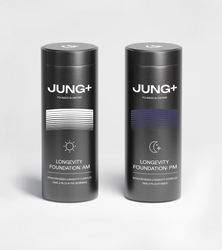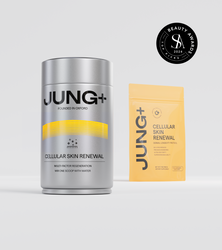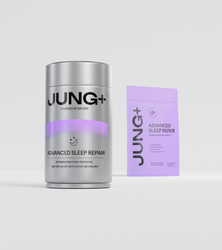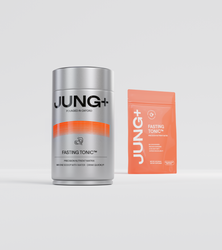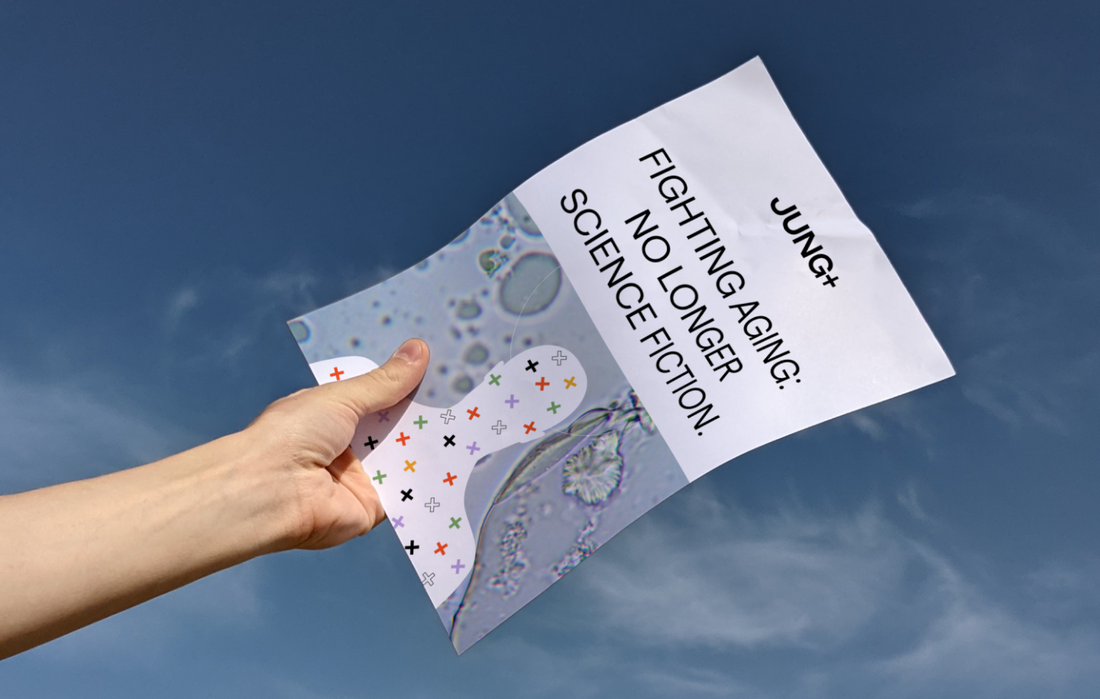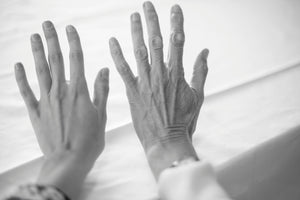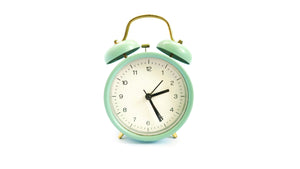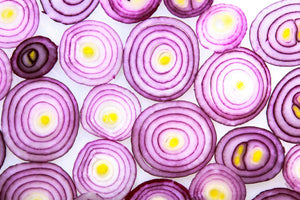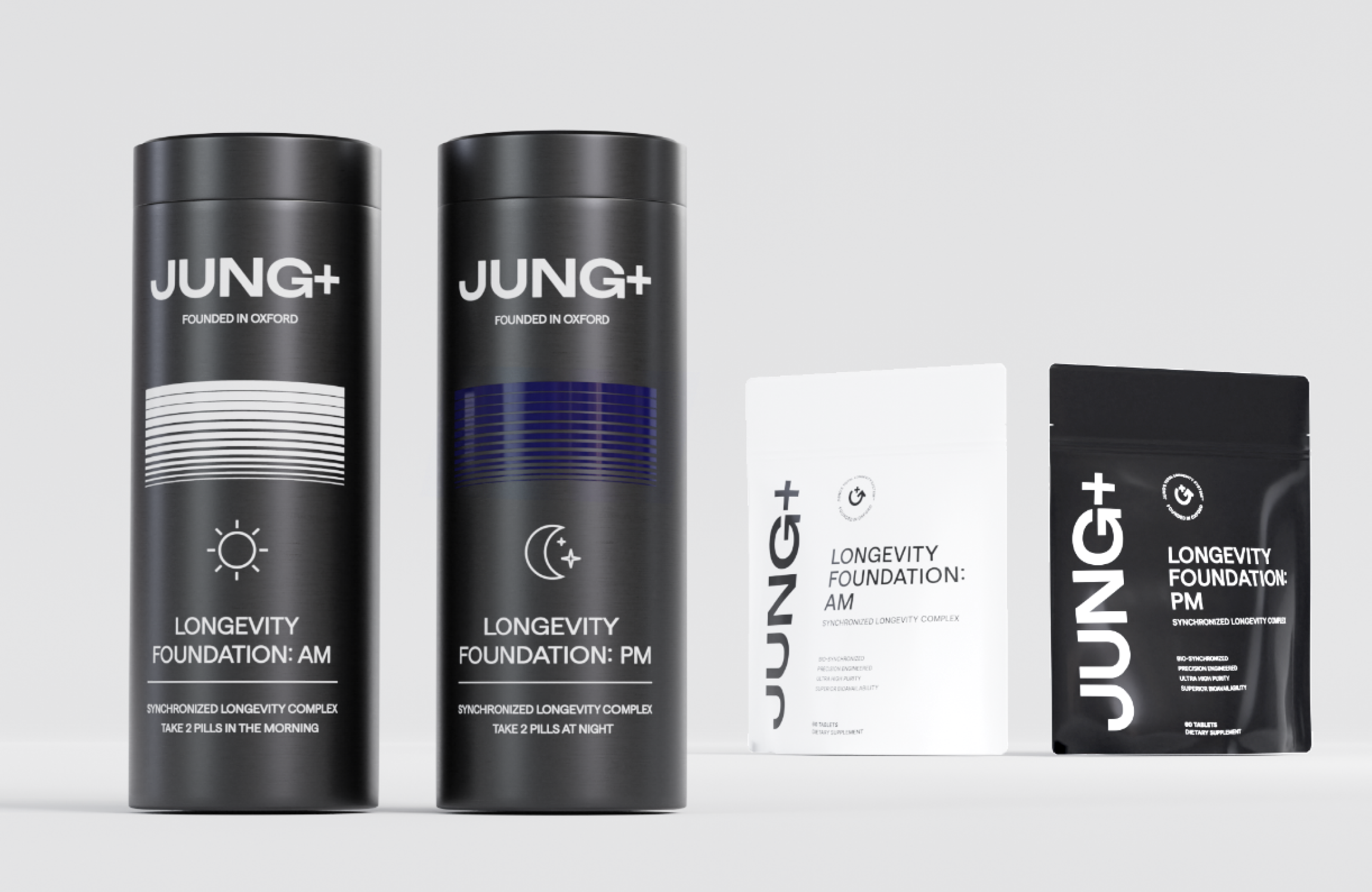Here at Jung+, we hear a lot about the idea of aging gracefully.
Let's get one thing straight: getting older is a privilege to be celebrated. Getting older is simply another word for living longer. It is our ability to see more, do more, and experience more over time – something we should all be striving for.
But 'Aging', as they say, is a natural part of life. If we consider that everything in nature is good, accepting aging, then, is our duty. “Aging gracefully” provides a kind of moral elitism that's hard to argue against.
But is everything in nature truly ‘good’? Scratch past the surface of any nature documentary, and you’ll find that nature can be cold, ruthless, and unforgiving. We get sad when we watch a baby seal get eaten by a shark, but we applaud when the mother seal feeds the baby seal by doing the same to someone else’s child.
The world does not exist in absolutes. Instead, it's a series of coinciding contradictions. And when we consider the difficult questions in life, it's important to see things from all sides.
Aging, in its absolute form, is an awful process. The biological aging process is a series of accumulated damages that wreak havoc on the body.
In its most visually apparent form, it gives you gray hairs and wrinkles. But taken to its logical conclusion, it will make you wildly susceptible to chronic disease, weaken your muscles,, and rob you of independence to the point of being unable to bathe or even go to the bathroom without help.
Perhaps worse than its physical effects, aging triggers a set of social changes that wreak havoc on people’s emotional lives. Social exclusion, stigma, and inexorable narrowing in who you are allowed to be drains your life of options. It impedes on your willingness to see and experience life as it’s meant to be lived.
So many of our social norms have been designed around aging that it has become almost impossible to argue with them. The enemy is not being older. The enemy is aging.
In many respects, ‘aging gracefully’ is a euphemism that asks us to downplay the hardships of growing older. The default for society is to lump all aspects of aging, good and bad, into a single definition, and ask us to accept it all. But at Jung, we want to break aging.
Breaking aging means taking aging apart bit by bit and exploring its contradictions – all the ways in which it affects our minds, our lives, and our bodies. We need to separate the social norms from the physical process, and rebuild the concept of aging from scratch.
We are given the gift of life, and it's our duty to cherish, protect, and safeguard this gift in every possible way. Aging gracefully should not be an excuse to let your body deteriorate if it doesn't have to. Quite the opposite: it's your responsibility to do everything in your power to protect and optimize your body at all stages of life.
We are lucky to be living in a moment in history where researchers are unraveling the aging process. Where an understanding exists that biological age is separate from numerical age. Longevity science gives us a way to target aging at its core. It's a revolutionary approach to personal health that will make the lives of every single person on the planet better.
Social norms constrain us. They tell us who we are supposed to be without asking us who we want to be. Life stages have developed as a reflection of biological aging. With these stages come, expectations about who we are, and what our worth is.
This is totally and utterly ridiculous. You should be whoever you want to be, whenever you want to be it. Part of this is pushing against the simple concept of ‘aging gracefully’, and not accepting expectations that limit your experience or exclude you from the rest of the world.
Society needs to radically rethink what it means to age. How we think about aging is a hangover from an antiquated time and place – one radically at odds with the freedoms and values that modern society holds dear. We invite you to join the movement and to help us break aging – starting with you.
-Simon Sakhai, Founder, Jung+

